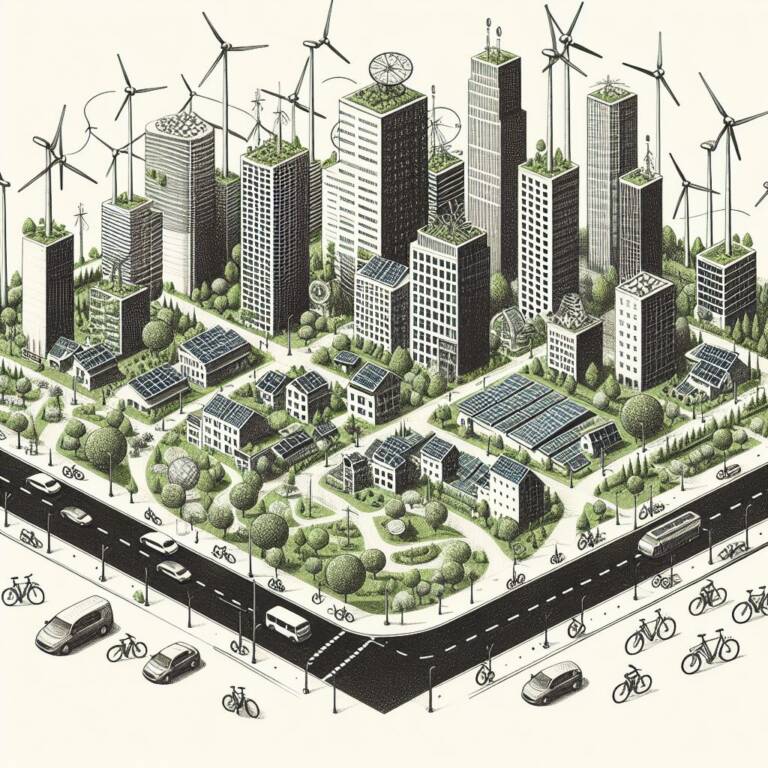What if the energy transition costs too much to be politically tolerable?

The energy transition is estimated to cost more than $100 trillion by 2050. In fact, it will cost $110 trillion, according to calculations by the Energy Transitions Commission, a group of business leaders.
This would translate to $3.5 trillion per year and represent 1.3% of projected global GDP over that period. As a percentage of GDP, the figure doesn't seem particularly impressive or scary: Deloitte estimates the cost of the transition is $5-7 trillion per year.
There are many estimates of the cost of the transition and different outlooks for global GDP, but it is certain that when we talk about transition, we are talking about trillions that need to be spent every year. And it seems that many investors and most regular consumers are unwilling to shoulder the burden.
Ahead of this year's COP28, which began in Dubai on Thursday, Reuters reported that transition supporters are concerned about high interest rates, which make the cost of capital more expensive, threatening to reduce enthusiasm for the transition among potential financiers.
“I am very worried. What was available at Libor plus 50 (basis points) or Libor plus 100 is no longer available at those rates,” Gauri Singh, deputy director general of IRENA, told Reuters.
Indeed, higher interest rates have been blamed by wind and solar companies for their higher costs and increasingly troubled economics, especially in offshore wind. They have also been blamed for governments' demands for more subsidies and rising electricity prices: rising rates have made it difficult to make a profit on many of these plants.
Capital will be discussed extensively at COP28. The possibility that the parties involved in the discussion will be able to reach an agreement remains very uncertain. Meanwhile, many components of the transition itself are having major problems.
In the United States, automakers are losing money on electric vehicles because demand is weaker than expected and the cars cost too much. In Europe, the industry is optimistic and expects a surge in electric vehicle sales thanks to the launch of many new affordable models. On the other hand, the gradual reduction of subsidies for electric vehicles in Germany starting from January 1st has raised fears of a decline in electric vehicle sales and Consumer Reports has just published a report according to which electric vehicles are less reliable than ICE cars. Both could affect sales prospects.
In the offshore wind sector, as already mentioned, there is no shortage of problems. This more expensive form of wind power generation has enjoyed considerable interest from transition-minded governments for several years, not least because project developers promised cheap electricity. Now this is no longer the case. Instead, offshore wind developers are taking billions in writedowns, canceling projects or, as mentioned, demanding higher prices.
It appears that rising interest rates, as well as expected shortages of some key materials, have hit the wind and solar industry more significantly than they have oil and gas. Oil and gas executives are also complaining about rising interest rates, at least in the United States, but they seem to be squeezing record production out of the oil fields despite this.
The list of examples is long. In short, the transition is proving more expensive than most consumers can bear. For investors, these developments are worrying from a yield perspective. For consumers, until low-cost EVs roll off the production line, the switch from ICE to electric is not something they would willingly do. And when you read news like this, that German grid operators would be able to limit the supply of energy to heat pumps and EV chargers, the switch starts to look even less attractive.
Regarding the above report, supply limitations would be necessary due to insufficiently large networks. Investments in the network are an important element in the price of the transition. And people are already resisting new transmission lines, demonstrating that, in addition to being expensive, the transition will be problematic in other ways.
“By applying a price – financial or implicit – to a free resource (the climate), the transition increases production costs, without any guarantee that the reduction in energy costs will ultimately compensate them, while the investments it requires do not increase production capacity but they still need to be funded.”
This is what French economist Jean Pisani-Ferry, senior fellow at the energy think tank Bruegel, claims, quoted by the Wall Street Journal. Pisani-Ferry added, in a recent report, that if switching to electric vehicles and heat pumps to support the transition cost more than their hydrocarbon versions, and if the government raised taxes to pay for heat pump subsidies and to electric vehicles, end consumers would end up worse off. In such a context it would be difficult to generate enthusiasm for the transition.
Even more difficult would be to convince investors that climate policies will not change with the succession of governments. The evidence so far, at least in Europe, points to the opposite. The new Swedish government has gone back on its previous climate commitments. Elsewhere, conservative parties are gaining popularity, not least with anti-climate rhetoric. Transition advocates have their work cut out for them.
The energy transition therefore, instead of getting closer, seems to be moving further and further away, demonstrating that forcing a path is not only useless, but counterproductive. Everything, in nature and in the economy, follows its own times and terms.

Thanks to our Telegram channel you can stay updated on the publication of new Economic Scenarios articles.
The article What if the energy transition costs too much to be politically tolerable? comes from Economic Scenarios .
This is a machine translation of a post published on Scenari Economici at the URL https://scenarieconomici.it/e-se-la-transizione-energetica-costasse-troppo-per-essere-politicamente-tollerabile/ on Mon, 04 Dec 2023 07:00:40 +0000.
